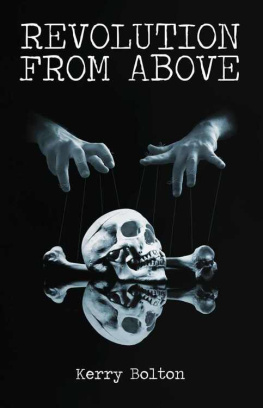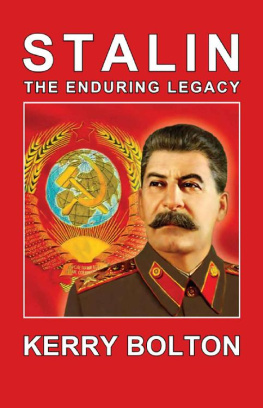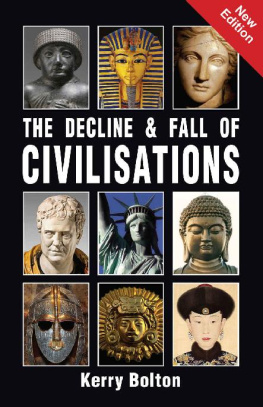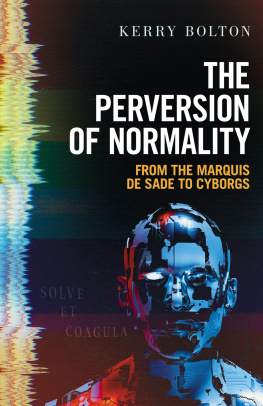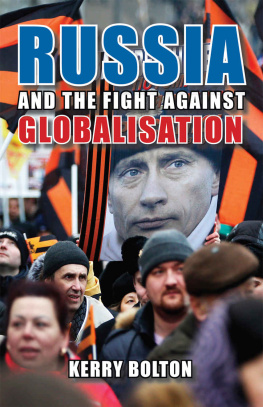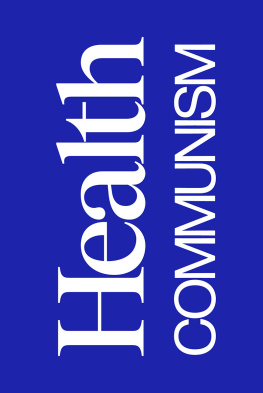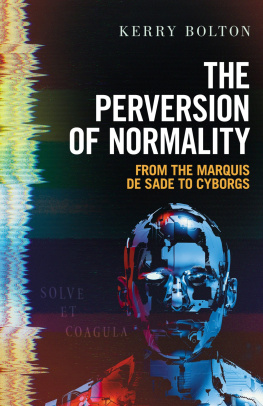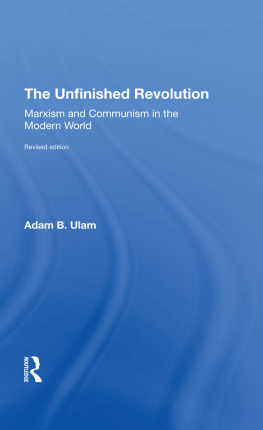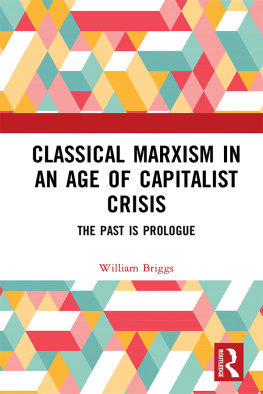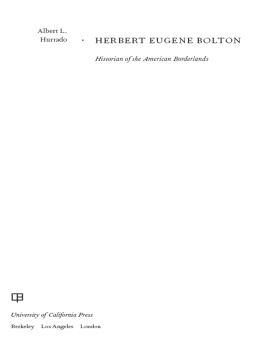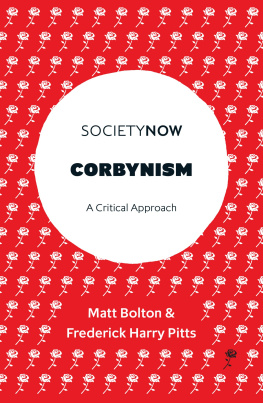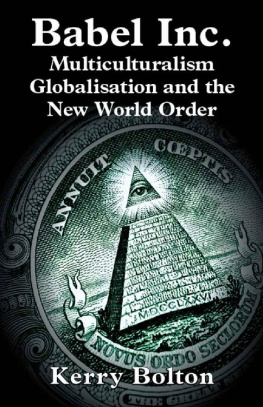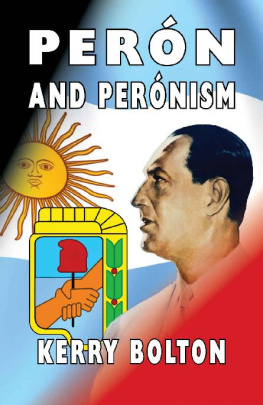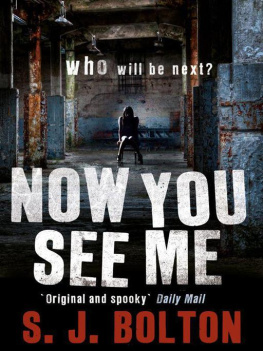Revolution from Above
Revolution from Above
Manufacturing Dissent
in the New World Order
Kerry Bolton
ARKTOS
First edition published in 2011 by Arktos Media Ltd.
Copyright 2011 by Arktos Media Ltd.
All rights reserved. No part of this book may be reproduced or utilised in any form or by any means (whether electronic or mechanical), including photocopying, recording or by any information storage and retrieval system, without
permission in writing from the publisher.
Printed in the United Kingdom
isbn 978-1-907166-50-1
BIC classification:
Revolutions, uprisings, rebellions (HBTV)
Revolutionary groups and movements (JPWQ)
Conspiracy theories (JFHC)
Proofreader: Matthew Peters
Cover Design: Andreas Nilsson
Layout: Daniel Friberg
ARKTOS MEDIA LTD
www.arktos.com
Table of Contents
K. R. Bolton holds doctorates in Historical Theology and Theology; Ph.D. (Hist. Th.), Th.D. as well as in other areas. He is a contributing writer for The Foreign Policy Journal , and a Fellow of the Academy of Social and Political Research, Greece. He assists with the editing of Ab Aeterno , a peer reviewed journal.
His papers and articles have been widely published by both the scholarly and popular media, including: International Journal of Social Economics ; Journal of Social, Political, and Economic Studies ; Geopolitika , Sociology Dept., Moscow State University; World Affairs ; India Quarterly ; The Initiate: Journal of Traditional Studies ; Irish Journal of Gothic and Horror Studies , Trinity College; International Journal of Russian Studies ; Veritas , St Clements University; Antrocom Journal of Anthropology ; Intertraditionale , Ukraine; Finis Mundi , Portugal; The Occidental Quarterly ; Novosti Foreign Service; Radio Free Asia; Global Research; Istanbul Literary Review , New Dawn , Australia; EIN News Service; Tibet Express ; Economia Cubana ; Sociologias; Red Star , Russian Ministry of Defence; BBC Uzbekistan; Academy of Security for Open Society, Russia; Writers Union of Russia; Burma Digest ; The Palestine Telegraph , Gaza; Alternative Right .
He is a regular contributor to the Thoughts & Perspectives series (London: Black Front Press); and to Counter Currents, publisher of his forthcoming book Artists of the Right. His work has been translated into Russian, Vietnamese, Italian, Czech, Latvian, Turkish, Farsi and French.
Introduction
G lobalisation and the New World Order are two current phrases used to describe a process that has been proceeding for generations.
International plutocracy has often pursued policies, used movements, and promoted doctrines that most people would consider to be anti-capitalist. Yet both capitalism and the Left arose during the same period of history, both have the same historical outlook, and both view traditional culture, the family, and nations as obstacles in the path towards a World State.
Lenin is alleged to have described liberals as the useful idiots of communism serving as apologists for Bolshevik revolution by heralding it as a noble experiment. Our hypothesis, to the contrary, is that not only liberals but also communists are the useful idiots of global plutocrats who desire a World Collectivist State. These interests are what Huxley in his prophetic novel Brave New World called the World Controllers, what President Dwight Eisenhower referred to as the military-industrial complex in his farewell speech to the American people, what Harvard historian Carroll Quigley wrote of as an international network of international financiers, and what is commonly referred to as Big Business, which has become increasingly globalised.
The main objective of this book is to expose what might be called the feel-good and supposedly progressive causes of a variety of types that fool often well-meaning people into serving as dupes for aims of which they know nothing, in the service of individuals and groups which they believe they are opposing; be it in the name of peace, human rights, democracy, womens rights, global warming, world poverty, and so on. Not all such causes are unworthy. However, often the causes that are embraced by the well-meaning have been contrived by those who offer bogus solutions to serve their own agendas. All of these are being pressed into the service of those who desire the creation of a World State built upon the edifice of Mammon.
1. Capitalist and Marxist Dialectics
B oth Big Business and Marxism view history as dialectical . Th is means that history proceeds from the clash of opposites ( thesis and antithesis ) and from this tension emerges something new ( synthesis ). In the instance of dialectical capitalism , the synthesis that is supposed to emerge is a centralised world state controlled not by commissars and a politburo but by plutocratic coteries and their technocrats. A strategy of dialectics means backing movements in the short term to achieve quite different, even opposite goals, in the long term. Hence the rationale behind capitalists supporting socialist and even communist movements, as will be shown.
In the case of communist dialectics, the Marxists believe that socialism cannot emerge in a peasant or agricultural society and that a stage of capitalism and industrialisation must first be reached. Of course the communist analysis is wrong: the major communist revolutions have taken place in peasant societies (China, Russia, and Cuba).
On the other hand, the dialectics of Big Business considers that plutocracy cannot be achieved until a society has gone from its peasant stage into an industrial phase. In order to achieve this sudden and forced industrialisation from a peasant society, the plutocrats have used socialism. History has shown that the plutocratic dialectic is proceeding successfully: the plutocrats backed communist revolutions in Russia and China to overthrow the traditional peasant societies. Once socialism had been used to achieve the industrialisation of those societies, the next phase of the dialectic has been to introduce privatisation and globalisation to the economies of the former Eastern bloc.
Dr. Antony Sutton later in his career came to understand the key to seemingly contradictory and even self-destructive policies on the part of globalist businessmen when he realised that dialectics and the use of managed conflict (Sutton) and controlled opposition were part of a dialectical process learnt directly from Hegelians in German universities by the sons of banking and business dynasties during the 19th century. Sutton was to succinctly write of this dialectical strategy, which provides the key to understanding much that often seems to be confusing and paradoxical in history and current events:
In fact, there is another largely unrecorded history and it tells a story quite different than our sanitized textbooks. It tells a story of the deliberate creation of war, the knowing finance of revolution to change governments, and the use of conflict to create a New World Order.
Th at global Big Business operates in a dialectical manner, similar in doctrine to the Marxists, is evident from a statement by one of the leading functionaries of the World Controllers. Zbigniew Brzezinski, who served as President Carters National Security adviser, and is a foreign policy adviser to President Obama, has been the North American director of the Rockefeller think tank the Trilateral Commission, wrote Between Two Ages as a dialectical treatise on the process of internationalisation , or globalisation as it is now called. While he sees Marxian dialectics as simplistic, his own approach is nonetheless dialectical. Brzezinski considers approvingly the technocratic age as progressively destroying the nation-state and undermining traditional loyalties, out of which a ruling global elite would emerge. He wrote:

